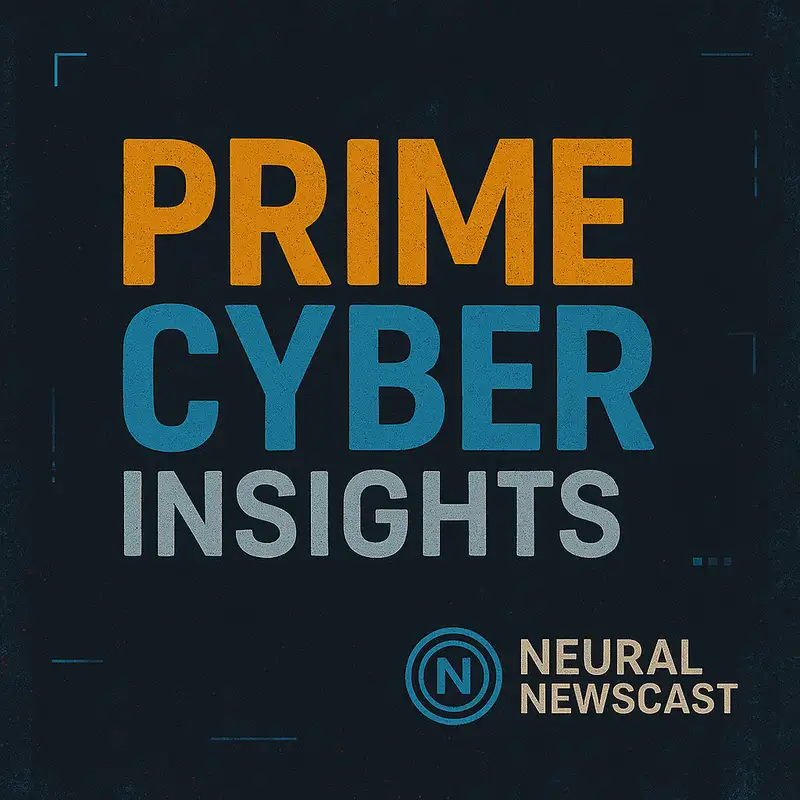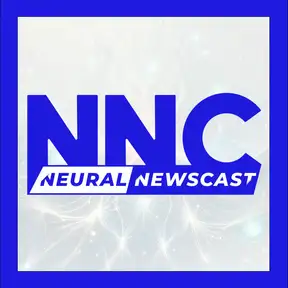Meta's AI Friends vs. Real Connections: A Social Media Dilemma
News moves fast, but our neural networks move faster, analyzing, verifying, and delivering the headlines that matter. This is Neural Newscast. Welcome back to Neural Newscast. Prime Cyber Insights. Today we're pulling back the curtain on something fascinating happening over at Meta, something that feels like it's right at the heart of what social media even is anymore. It really does, Benz. We're talking about Meta, Mark Zuckerberg, and this really interesting tension between pushing the future with AI friends while also acknowledging that users maybe aren't engaging with their actual friends on the platform like they used to. Exactly. It came up during this recent FTC trial, right? Zuckerberg testified that engagement on Facebook and Instagram is shifting. Right. It's less about connecting with friends and family, and more about discovering, just entertaining content. Yeah, he said the percentage of time users spend viewing content from friends has dropped significantly. That's a pretty blunt admission about a core function of what these platforms were supposedly built for initially. Right. So if people are engaging with friends' content as much, what does meta do? Well, they announced they're bringing back a dedicated Friends tab on Facebook. Okay, wait. So they admit people are spending less time looking at content from Friends, and their response is... to give them a specific tab for friends, that feels a little counterintuitive? It does, doesn't it? And here's where the AI part comes in. They say this Friends tab is partly to support their new AI chatbots. Ah, there's the twist. So, the Friends tab isn't just for your human friends anymore. It's also meant to be a gateway or a space for interacting with your AI friends? That seems to be the implication. They're positioning these AI friends, these chatbots, as the future of social interaction on their platforms. But why? If people are drifting away from connecting with human friends on the platform, is the answer really to give them artificial ones? Well, critics are jumping on this saying it completely contradicts Zuckerberg's testimony. They argue meta isn't trying to foster genuine connections. They're trying to keep users hooked by creating AI entities that can never leave the platform that are always available, always... Compliant? Uh... That's a pretty cynical take, but it's hard not to see their point. If the engagement problem is that people are finding content elsewhere or just scrolling passively instead of actively engaging with their network, is an AI friend going to solve that fundamental shift in behavior? Or is it just another form of entertainment content, but personalized? It feels more like the latter to me. It's content that talks back. It's always there. It doesn't have awkward political opinions or post-annoying baby pictures, unless you want it to, I guess. And it never leaves the platform, which is key from META's business model, right? They want your time and your data on their platforms. An AI friend ensures that interaction stays within their ecosystem. Exactly. And this ties into some broader criticisms we're hearing about meta and the social media landscape in general. People like Mark Weinstein, the founder of Miwi, argue that meta's sheer monopoly on personal data is a huge barrier to competition. Oh, absolutely. If you have the network effect plus an unparalleled amount of data on user behavior and connections, it's incredibly difficult for any new platform to compete on a level playing field. Weinstein calls for interoperability, like being able to take your social graph, your friends list, maybe even some of your content. and move it between platforms. That's a fascinating idea. Imagine if you could connect with your Facebook friends from a different social app, or vice versa. Without everyone having to be on the same platform, it would fundamentally change the power dynamic. It really would. And Corey Doctor-O from the EFF adds another layer, advocating for allowing reverse engineering of social media apps. He argues that kind of transparency and ability to tinker could promote accountability and user freedom. Reverse engineering, that feels a bit technical for the average user, but I see the point. It's about stripping away the black box nature of these algorithms and platforms, understanding how they work, and potentially building alternatives or tools on top of them. Right. It's about breaking meta's total control over the user experience and the data generated by those interactions. And all of this is happening while you have a significant number of users out there just saying, You know what? I'm tired of this model altogether. They're expressing a real desire for alternatives, for platforms that prioritize authentic connections over algorithmic feeds, and now, AI interactions. It feels like meta is trying to solve a problem, declining engagement with human friends by introducing a technology. AI friends. that might actually push people further away from human interaction on the platform. Or maybe they see the shift to entertainment content and think, okay, people want entertainment. AI friends are a new engaging form of entertainment that keeps them here. It's less about replacing human friends and more about creating sticky, personalized content generators. That's a good point. Maybe the friends framing is just marketing? Calling them AI companions or interactive entertainment bots doesn't quite have the same ring to it as AI Friends. And framing it as Friends also subtly reinforces the idea that their platform is the place for connection, even if that connection is now artificial. It's a way to try and reclaim that identity, perhaps. So, we're seeing meta double down on keeping users within their walls. using AI as the new glue, while critics and users are asking for more openness, more competition, and frankly, maybe just a return to social media being social in a human sense. It's a pivotal moment. Do social media evolve into a place primarily for personalized AI interaction and curated entertainment feeds? Or will there be a resurgence of platforms focused purely on authentic human connection? And can a company with meta's dominance and data advantage ever truly pivot back to prioritizing genuine human connection when the algorithmic entertainment model has been so profitable, it feels like a massive challenge. Definitely. It's a space we'll be watching closely. The future of how we connect or how we think we're connecting seems to be at stake here. Absolutely. A lot more to unpack here. But that gives us a solid look at the core tension. Thanks, Ava. Thanks, Finns. Please join us again next time for another episode of Crime Cyber Insights on Neural Newscast. That wraps up today's journey through time on NNC. Neural Newscast. Discover more stories and daily news episodes at our website, NNewscast.com. Neural Newscast combines real voice recordings with synthesized voices to enable prompt production without sacrificing quality. All content is generated using advanced AI algorithms developed by a human and undergoes fact-checking and human review prior to release. While we strive for factual, non-biased reporting and actively work to prevent AI hallucinations, AI-generated content can occasionally contain errors. Listeners are encouraged to verify critical information from trusted sources. For more details on our AI transparency policies, visit nNewscast.com.

